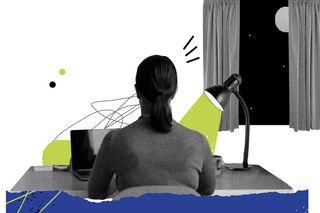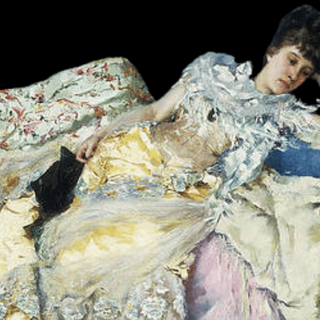
Is This Normal? “I Am Most Productive at Night”
Circadian rhythms, our bodies’ internal clocks, determine when we’re most productive.

In this series, we dig into our strange phobias, fixations, and neuroses, and ask ourselves — Is This Normal?
Never have I gotten as much work done in the morning as at night — this is not because of a lack of trying. I have tried to regulate my schedule the conventional way for as long as I can remember, only natural when you grow up in a world that tries to drill the ‘benefits’ of rising early into our minds from a very, very tender age, with poems saying, “Early to bed and early to rise, makes a man healthy, wealthy, and wise.”
So far, most of my efforts have gone in vain, I am someone who simply cannot get myself to focus as well during the day — making it difficult for me to navigate the ‘nine-to-five’ work culture. I’ve no clue how to fix this particular trait — or if it needs fixing at all.
Does it? Or is this normal? Turns out — it kind of is.
Our sleep-wake cycles are regulated by something called the circadian rhythm — our bodies’ natural, internal clocks. Differences in circadian rhythms determine our chronotype — whether we’re ‘morning larks’ or ‘night owls.’ A person’s chronotype is the likelihood of a person to sleep at a particular time during the 24 hours, and it also has a bearing on their productivity — ‘night owls’ tend to have poorer attention spans, slowers reactions, and drowsiness for a greater part of their work-days, research shows. “A huge number of people struggle to deliver their best performance during work or school hours they are not naturally suited to,” Dr. Elise Facer-Childs from the Centre for Human Brain Health at the University of Birmingham, tells CNBC News.
And research suggests that 40% of human beings fall in this category.
Reportedly, one’s chronotype can undergo slight shifts based on one’s age, resulting in variations in sleep patterns as people grow up — influencing their productivity. For instance, while children and older people are believed to prefer mornings, adolescents and young adults may prefer evenings. Moreover, since chronotypes exist on a spectrum and are increasingly varying, people may exist outside the dichotomy of ‘lark’-ness and ‘owl’-ness too. Someone may be most productive at twilight or the afternoon, or someone who was formerly a ‘night owl’ may now be an ‘early riser’.
Related on The Swaddle:
Napping Isn’t Lazy; It’s Genetic, Researchers Find
But what causes circadian rhythms to vary from person to person? According to a study of almost 700,000 people from the U.K., our genes, as well as our surroundings, can contribute to the variation. However, for some, being a ‘night owl’ can be a matter of preference too.
Interestingly, my productivity levels went up during the day — once the pandemic forced me, and countless others, to work from home. The change responded to the work-from-home setup that eliminates external physical and behavioral distractions. Earlier the flurry of activities around us carried the potential to act as a distraction, preventing many from functioning optimally. The bombardment of “questions, emails, texts, phone calls, or social media,” and can make it difficult to concentrate during the day.
While the bombardment itself still exists, it’s not in person anymore — allowing people to take small breaks from it by keeping their screens away for a while and focus on the task at hand. “I prefer to write at night because I prefer solitude. I never feel a real sense of solitude in New York unless the world outside and the world contained within my apartment is still,” Mictian Carax, a (then) college student from Brooklyn, had told Vice in 2018.
In addition to the social stressors, sensory stressors like bright surroundings, office chatter, the noise of people typing into their laptops, or smells emanating from a variety of food and beverages, too, can be distracting for many, including neurodivergent people like myself with high sensory sensitivity. Similarly, a number of people with Attention Deficit Hyperactivity Disorder (ADHD) too, report being more productive at night since there are fewer distractions — enabling them to focus their attention on any given task better.
While it’s unfortunate that the ‘nine-to-five’ work culture isn’t designed to accommodate the biological schedules of at least 40% of people, the reality is this expectation is unlikely to change anytime soon. Until then, to placate ourselves, we can rely on feel-good articles that tell us how ‘night owls’ are statistically more intelligent than ‘morning larks’, and have a higher chance of “striking success” — whatever that means.
Writer Dana Leventhal sums up this conundrum in an article in Vice: “Fighting [your body’s internal clock] might mean fighting an integral part of the way your brain functions, so maybe just keep doing what you do… The smug morning people will always exist. You and I probably won’t be awake to have to deal with them.”
Devrupa Rakshit is an Associate Editor at The Swaddle. She is a lawyer by education, a poet by accident, a painter by shaukh, and autistic by birth. You can find her on Instagram @devruparakshit.
Related


It’s Okay: To Not Have a Hobby
